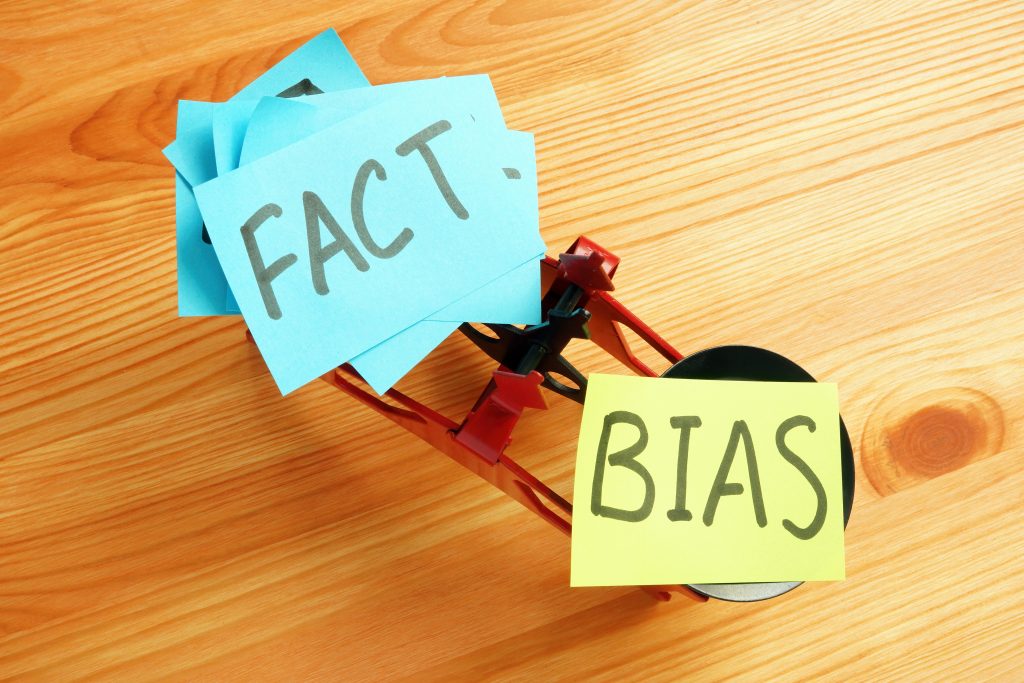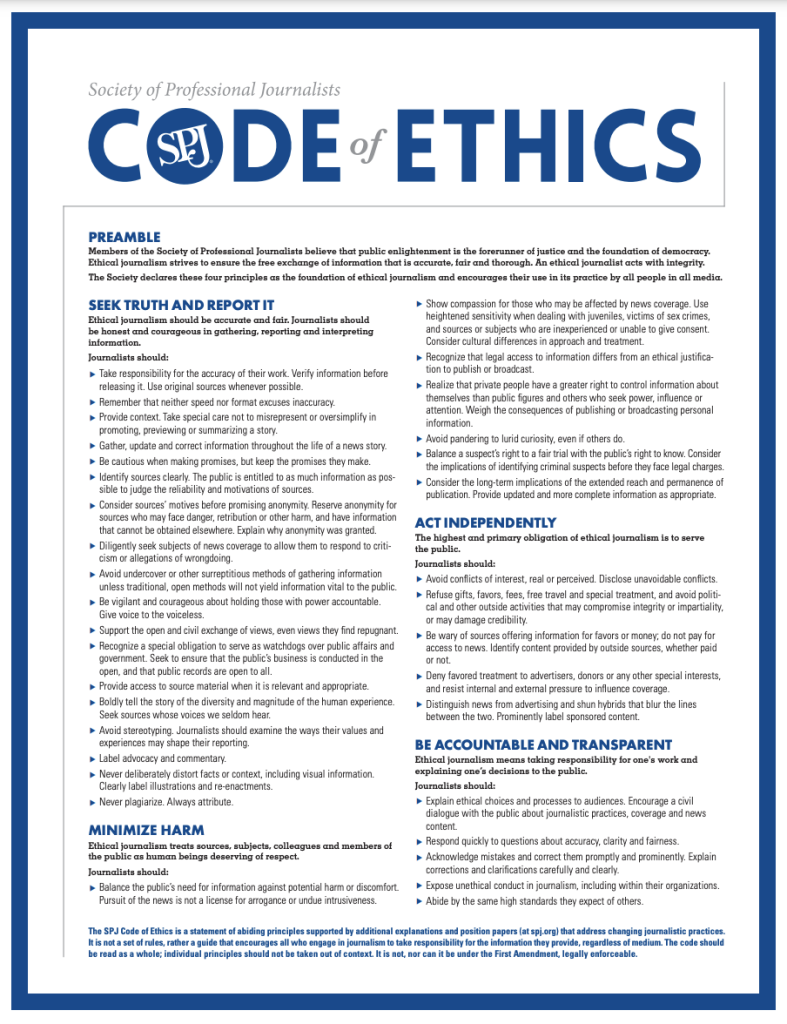Are Americans “Over It!” with News? And To What End This Election Year?
In matters of perceived media bias, have some traditional news sources pushed Americans to the point where they no longer care?
I was reminded last year in my local community in Tennessee just how important a functional, independent, free press is to the fabric of American life.
Thanks in significant part to my local community newspaper, The Daily Times, and its local news reporting about board-level and executive-management problems at our county-owned hospital, a very problematic (even toxic) CEO finally found his way to resign from his post.
It was glorious!
It was particularly glorious, considering the avalanche of advertising spending the local hospital historically threw at the newspaper… yet The Daily Times remained steadfast in reporting news, as it occurred, in service to the public’s right to know.
RESULT: We got rid of the bad guy (whose looney-toon antics actually included — and I’m not making this up — ordering the disposal of Daily Times newspaper vending machines off hospital property, so that he could somehow block his employees and patients from reading the latest reports about… his ordering the disposal of Daily Times newspaper vending machines off hospital property, among his other management failures).
<cue the laugh track>
The Daily Times’ “watchdog” role — in publishing facts that ultimately resulted in accountability by those with power — deserves much of the credit for pushing forward much-needed change.
But that’s the way America’s free press is supposed to work in service to stuff like democracy, justice, an informed electorate, Mom, and apple pie, right?
One would think so.
But then, I’m forced to think again.
Juxtapose that positive, uplifting experience with news media with what I’ve seen transpire long-term in the public relations industry… for years (as but one example from my personal experience).
Sadly, U.S. and international PR trade press have widely abdicated their responsibility to hold the Public Relations Society of America (PRSA) accountable for millions in financial discrepancies and reporting failures — or for other such tomfoolery as PRSA’s current national board chairman falsely impersonating an attorney by scampering around Lee County, Florida, with “Esquire” affixed to his name… (although I have to give credit, where due, for the trade media outing PRSA’s shameful fumbling and bumbling late last year on the issue of antisemitism).
On balance, this other experience I’ve had with news media has been… not-so-glorious.
In the particular case of PRSA’s virtual free-pass from accountability by trade media, the bad guys are still in positions of authority, after literally YEARS of their non-stop nonsense.
They continue collecting dues from unwitting PR practitioners (many of whom are early- to mid-career women — including professionals of color — in “pink-collared ghetto” situations, who are woefully underpaid, particularly compared to men in similar positions), as well as monetary sponsorships from oblivious industry partners.
Yet they’re still out there, doing what bad guys do… which, in this case, amounts to a lot of damage and disservice in an industry that doesn’t need PRSA’s level of incompetence and corruption compounding the larger industry’s existing challenges.
So, as you might surmise, my relationship with news media resides firmly in the category of love / disappointment.
When news media do their jobs well and ethically and to great societal service (Example: The Daily Times of Maryville, Tennessee), you won’t find a bigger fan-girl than I.
(Footnote: My own collegiate degree was within a School of Journalism… so for me, the roots of my ideological belief in the 1st Amendment run deep).
But when news / trade media fail to show up to a 4-alarm fire — after they’ve been spoon-fed clear evidence for years that the fires of corruption are engulfing the U.S. PR industry — but they opt instead to keep playing in their own little sandbox with their pay-to-play advertisers, I’m sorely disappointed and displeased.
It’s unacceptable to see important institutions being harmed further by so-called “watchdogs” in the press who place their own profit over purpose… all the while, they pontificate in their own editorials to the rest of the industry about the higher virtues of purpose over profit…. blah, blah, blah.
Which brings me to the sentiments of other Americans who share my disappointment in various forms…
A recent Pew Research study may have been lost in the 2023 holiday-season shuffle, but it’s well-worth a read:
“Audiences are declining for traditional news media in the U.S. – with some exceptions.”
The study reveals important insights for the U.S. PR industry (and journalism), tied to Americans’ conflicted relationship of love / disappointment / apathy with news media.
More importantly, it provides a worrisome snapshot.
It’s taken a while, but advertiser and subscriber buy-in (or sell-out, as it were) have just about reached the same place.
Further, it seems our dysfunctional society may be rejecting the very antidote to its dysfunction:
…truthful, accurate information reported by objective, third-party, credentialed journalism professionals who don’t have a political or economic self-interest in skewing news reports either one way or the other… so that citizens can receive unfiltered truth about issues that matter.
But wait!
Is such a description in 2024 essentially a news-media utopia that no longer exists?
And is that non-existence the very core of the problem, from Americans’ vantage point?…
…That nearly all news has too much baked-in bias?
…That there’s nearly always an undisclosed political angle being given preferential favor?
…That amid the traditional news media websites’ “real” news reports, there is a sea of click-bait nonsense, polluting the credibility of the entire platform?
These are just some of the now long-existing issues (as in decades-long) thrown into the mix of why Americans hold pessimistic and even disinterested attitudes about news media.

The advertising business model for news media slowly but surely got turned on its head, and when that happened, credibility suffered.
As in most scenarios, people’s pessimism usually turns to apathy when they have been so disappointed and so disillusioned so many times that they can’t be bothered to care anymore.
Let’s step back for a moment… to the year 1987.
I’ve written a few times in the past about my love of the 1987 film, “Broadcast News.”
It remains a must-watch for any journalism student in 2024, because it provides a snapshot in time of a pre-Internet news-media era, when the old-school, high-brow “Edward R. Murrow” brand of deep journalistic rigor truly began to morph into a more lax, “retail reporting” culture… catering to a lowest-common denominator for return on investment.
And in broadcast news, ROI hinged on Nielson ratings.
One of the foundational plot elements of the film “Broadcast News” had to do with the issue of journalistic integrity.
The movie delved into how the defenders of “old-school” bastions of ethical journalism were having to fight an internal industry conflict against those within their very ranks, who were infiltrating profit-focused network boardrooms and c-suites to promote a pop-culture element of news-as-entertainment.
There’s a pivotal scene, where the heroine – an uber-principled, early career but old-school-journalism-idealist network producer, played by Holly Hunter – stumbles upon raw interview footage of her somewhat unschooled and very ethically challenged reporter colleague (and ironic love interest), played by the late William Hurt.
Hunter’s character discovers — to her shock — that Hurt’s character faked his own emotional tears during his interview with a rape victim, by manufacturing a post-interview cut-away take, inserted into the final reel in order to appear as though his tears-of-empathy with a tearful rape victim were authentic and in-the-moment during the actual interview, which aired to an unwitting national audience, to much acclaim.
Despite his massive journalistic ethics breach, Hurt’s character goes on in the movie to be promoted and rewarded within the television network (all the way up to network anchor) for such dishonest tactics and deliverables… which wholly violate the Hunter character’s own professional values about news-delivery honesty and integrity.
The Holly Hunter character’s impassioned response of combined anger and disillusionment is something I can relate to… completely.
It’s very tough when you hold idealized principles about your profession that you think are embraced and honored by your colleagues… only to discover in real-time that those principles are betrayed at the drop of a hat, in order to score false praise and, in the case of this film clip, a blip of a boost in the ratings for little other purpose than, you know, ka-ching-ka-ching $$$ and all that jazz.
In light of this latest Pew Research data, I’m unsure if the insights are quite as much an indictment of the American public’s curiosity or level of intellectual quality as it is a barometer of their having felt betrayed by far too many news outlets’ partisan and economic skews these past few decades.
Media folk and academics who deny such things exist are simply delusional. And Americans are over-it with the gaslighting.
As the saying goes, “Never push a loyal person to the point where they no longer care.”
Apathy truly is the ultimate abyss, and far too many media — living in their own bubble — have played their role to push the American attitudinal mindset precisely to such a place.
As we now find ourselves approaching another U.S. Presidential election in which the puppet strings are in plain sight of what data and facts typically get delivered — or if they get delivered at all — news media need to ask themselves if what they’re delivering to the public pass basic tests of “old-school” journalistic scrutiny: objectivity, multi-sourced balance, etc., etc., versus kowtowing to certain imbalanced interests, whether disclosed or — far worse — undisclosed.
One need not look too much further than the Society of Professional Journalists’ Code of Ethics to see what those basic tests should be:

Our society needs objective news media serving as watchdogs to protect public institutions, even as models of revenue continue changing into something they’ve never been before.
Is public trust in media worth the trade-off of a largely undisclosed pay-for-play environment?
What do you think?…
